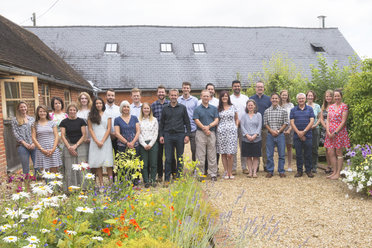Our sustainable Tourism Vision
At Naturetrek we have achieved AITO’s top, 5-star Sustainable Tourism accreditation and have always tried to operate our holidays in an environmentally responsible manner, striving to contribute to wildlife conservation and habitat preservation at all times. This is our detailed Sustainable Tourism Policy. It catalogues our contribution (both financial and operational) to sustainable tourism and conservation; it states our own ‘ST’ policy, and it suggests guidelines for you – the tourist – to follow whilst on holiday. Please take the time to read it carefully!
Ours is a tour company run by naturalists for naturalists. Unsurprisingly, all of us have an acute interest in conservation. Wildlife and wildlife tourism, and the need to ensure the long-term protection of species and habitats, are an important part of our lives. In the national parks and wildlife regions that we visit, we support small, locally owned hotels and lodges and the local guides and other staff in these areas. With your help and support they will flourish.
Sustainable Tourism – Our Policy
Naturetrek’s founders, staff and tour leaders are naturalists and conservationists turned tour operators, and sustainable tourism has been a key part of Naturetrek’s ethos since the company began in 1986. We are, of course, utterly dependent for the success of our business on the well-being of the world’s wildlife… and the habitats, reserves and national parks that protect it. Thus, our aims are:
- To focus, particularly, on visiting national parks, wildlife reserves and wilderness areas which, by and large, do not benefit from the rewards of mass market tourism.
- To minimise environmental impact by exploring in small groups and, as much as possible, on foot.
- To use, wherever possible, local guides… and to train them to the highest standards expected by modern-day wildlife tourists.
- To involve local communities wherever possible in our operations, and to ensure that they receive a fair share of the benefits of wildlife tourism.
- To use, wherever possible, small, locally owned, family-run accommodation, and similarly owned and operated specialist local agents/ground operators with a wildlife/conservation bias and sympathy.
- To purchase, where possible, local produce.
- To develop and commit to long-term plans to visit rural areas and support the local communities.
To contribute financially to projects local to the areas that we visit (i.e. schools, hospitals, conservation projects, etc.)
- To educate the local people on the importance and long-term benefits of wildlife tourism.
- To keep our clients well-informed on aspects of wildlife management and conservation.
- To work with British and overseas conservation organisations to develop new wildlife tourism destinations.
Where possible to run tours in partnership with conservation organisations, both to raise funds for that organisation, and to raise its profile. Such organisations include, or have included, the Environmental Investigation Agency (EIA), International Animal Rescue (IAR), Butterfly Conservation, Zoological Society of London (ZSL), MARINElife, Birdfair, etc.
- Where possible to fund, and/or develop partnerships with, local communities and/or naturalists, in order to develop low-impact and environmentally friendly tourist facilities in exceptional wildlife areas. Koshi Camp and Suklaphanta Wildlife Camp are examples of such partnerships.
- To run our UK office (a beautiful barn conversion set amongst a 12-acre grassland site in the village of Chawton) in as energy-efficient a manner as possible.
It is our aim to encourage and develop a passion for wildlife and wild places amongst our customers (many of whom are novices, trying this form of holiday for the first time), and the conservation of them.





